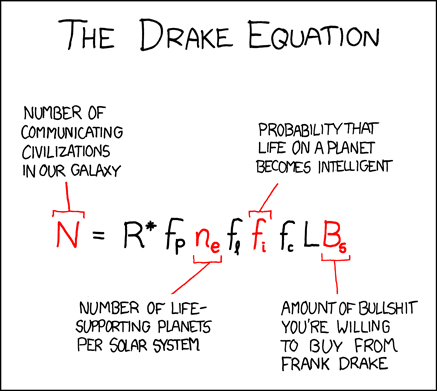from the let-me-count-the-ways dept
A while back someone had sent me to a website I'd never heard of called 24/7 Wall St. that had a post claiming how much certain top blogs were "worth." The reason someone pointed me to it was because it had Techdirt in the list. What was amusing was that whoever wrote the article made a bunch of assumptions and
every single one of them was wrong -- and some of them could have been checked with a simple look at our website. Given that every single assumption was wrong, the conclusion was equally laughable. I actually emailed them to point out a few factual errors in the post -- none of which were corrected. Since then I tend not to trust anything from that site -- though it has a habit of getting attention for similarly ridiculous "estimates," and people repeat them as if they were factual.
Allison K was the first of a whole bunch of you to send in the fact that the site is trying to
"estimate" the "impact of piracy" of iPhone apps on Apple and app developers. While I commend the site on at least explaining its methodology, the more you read it, the more ridiculous it becomes. They simply layer questionable assumption upon questionable assumption upon questionable assumption, and when they get stuck, they pull out a random number. It's almost comical to read. As Allison noted, it reminds her of xkcd's famous comic of
the Drake Equation, where one of the variables in the formula is defined as "Amount of bullshit you're willing to buy from Frank Drake":

It's nice to have some sort of concrete numbers, because people like to have numbers to discuss. But when they're based on so many layers of questionable assumptions, they tend to do a lot more harm than good. People will assume there's some real basis for them when there is not.
And, of course, as everyone should understand by now
there's no such thing as "losses" from unauthorized access. There is
only a failure on the part of the company to convince people to buy. There is no line in their financial reports on "losses" from such activities -- with good reason. The only issue is a business model issue, which is that the company has not given users a good enough reason to buy, so they chose to get the product elsewhere.
Update: And it gets more ridiculous. 24/7's response was a comment below that did not address any of the concerns but simply says that I must not have made it through my high school math class. Classy. Meanwhile,
Dark Helmet points us to
TUAW's takedown of the numbers, where they note that based on the assumptions, 24/7 appears to be assuming that there are 510 pirated apps per device. Uh. Yeah. Check those assumptions, folks.
Filed Under: iphone apps, losses, piracy
Companies: apple


